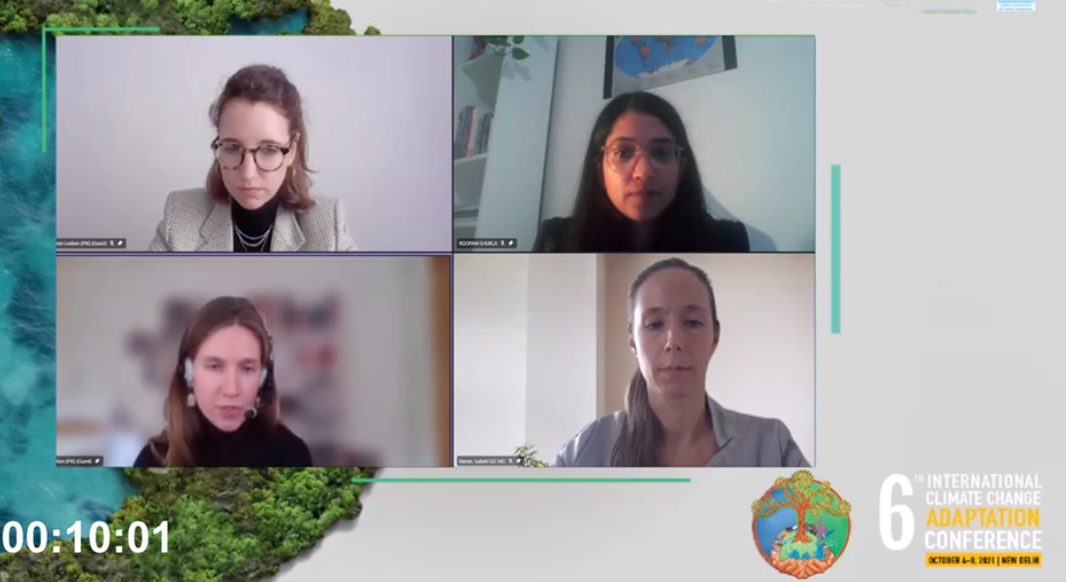PIK team organised expert panel at Adaptation Futures 2020 Conference
The Adaptation Futures 2020 conference took place in New Delhi from October 4-8, 2021 and was co-hosted by The Energy and Resources Institute (TERI) and the World Adaptation Science Program (WASP). The expert panel was jointly organised by the Potsdam Institute for Climate Impact Research (PIK), the Deutsche Gesellschaft für Internationale Zusammenarbeit (GIZ) and the Leibniz Centre for Agricultural Landscape Research (ZALF).
During the session, gaps in the implementation of agricultural adaptation strategies were discussed and opportunities to bridge these gaps were showcased. The session was opened with three keynote speeches: Dr. Dorothe Nett, Head of Rural Development at GIZ, spoke about the importance of science to inform climate adaptation in agriculture within the context of German development cooperation. Ms. Lisa Murken, scientist at PIK, gave an overview of potential scientific methods to assess climate impacts on agriculture, in particular the AGRICA approach, and presented key learnings from the AGRICA project. Dr. Antwi-Boasiako Amoah, Deputy Director, Climate Change, National Coordinator NAP Project from the Environmental Protection Agency (EPA) in Ghana gave key insights into the complexities of translating scientific evidence into policy and planning at national and local levels.
After a short round of Question and Answers, scientists and practitioners gave short presentations on concrete examples of how to bridge gaps in the implementation of agricultural adaptation strategies. Dr. Roopam Shukla, scientist at PIK, presented findings from a global systematic review showcasing the importance of integrating farmers’ agency in adaptation planning. This was followed by a presentation by Dr. Abel Chemura, scientist at PIK, on lessons learned from a participatory process selecting agroforestry systems for maize yield as a climate change adaptation strategy in Ethiopia. These scientific presentations were complemented by a presentation held by Ms. Isabell Kiener, international expert on the development of climate resilient value chains in the GIZ project “Adaptation to climate change of agricultural value chains (PrAda)” in Madagascar, who showed how digital approaches, direct exchange with local producers, consideration of existing structures and the local context helped to enable better decision-making of farmers and their implementation of appropriate actions for adaptation to climate change.
The session not only showcased and underlined the importance of science-based adaptation planning, but also highlighted that there is often a disconnect between science and implementers at policy and local levels. To overcome this gap, the scientific approach of designing adaptation strategies needs to be complemented by participatory processes including farmers, policy makers and other stakeholders to ensure the adaptation efforts are suitable for the location and cater for the various needs of the different stakeholders.
The session was moderated by Ms. Sophie von Loeben, Scientist and Project Coordinator at PIK.



